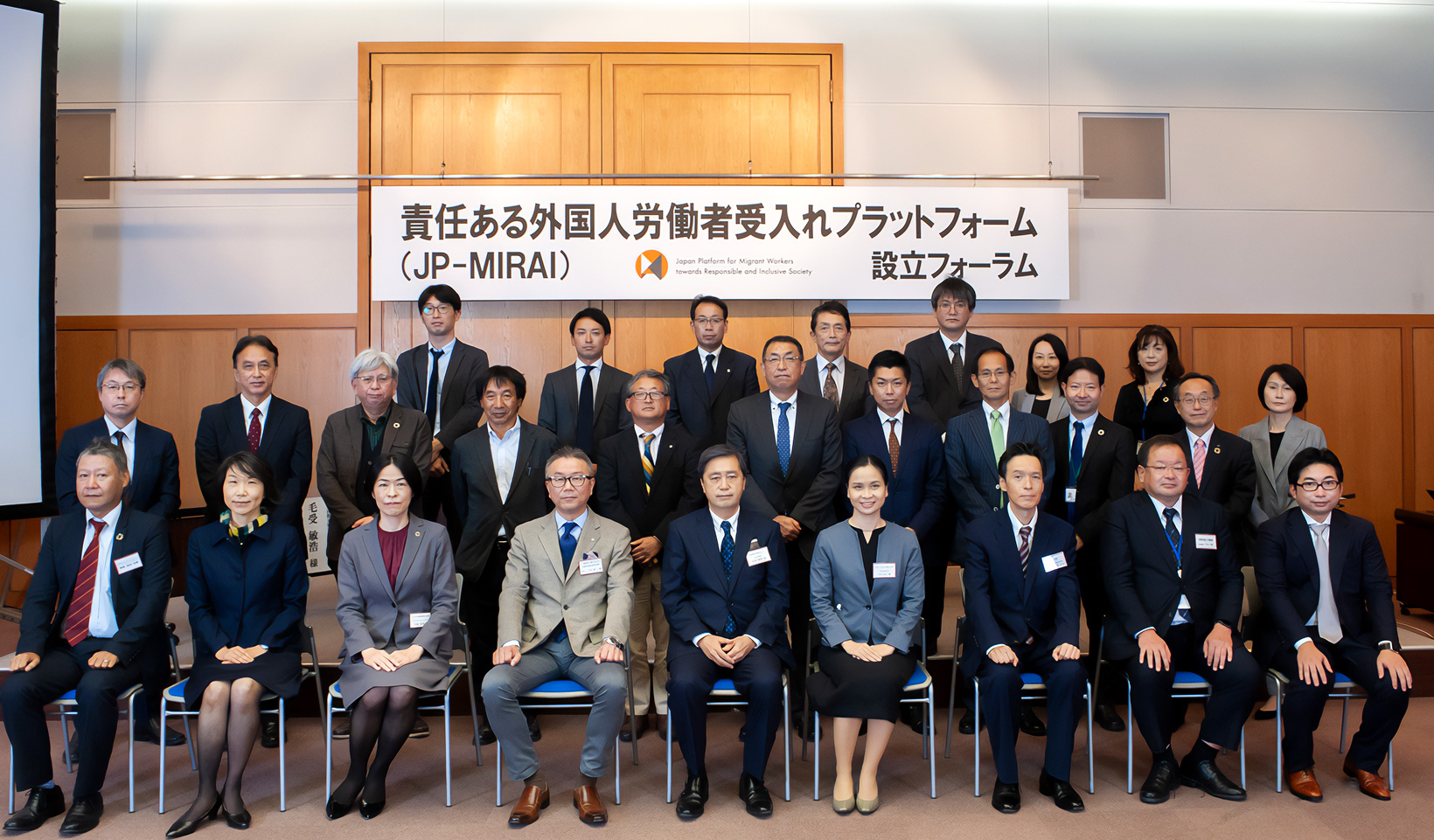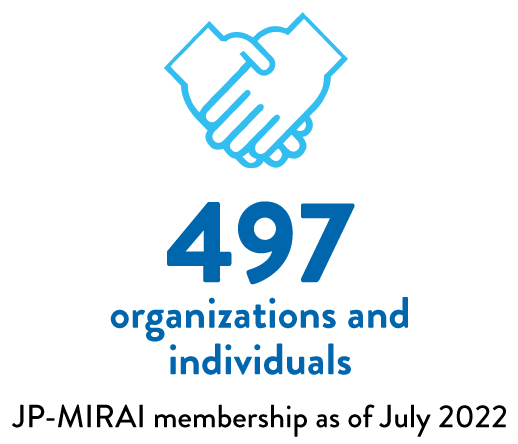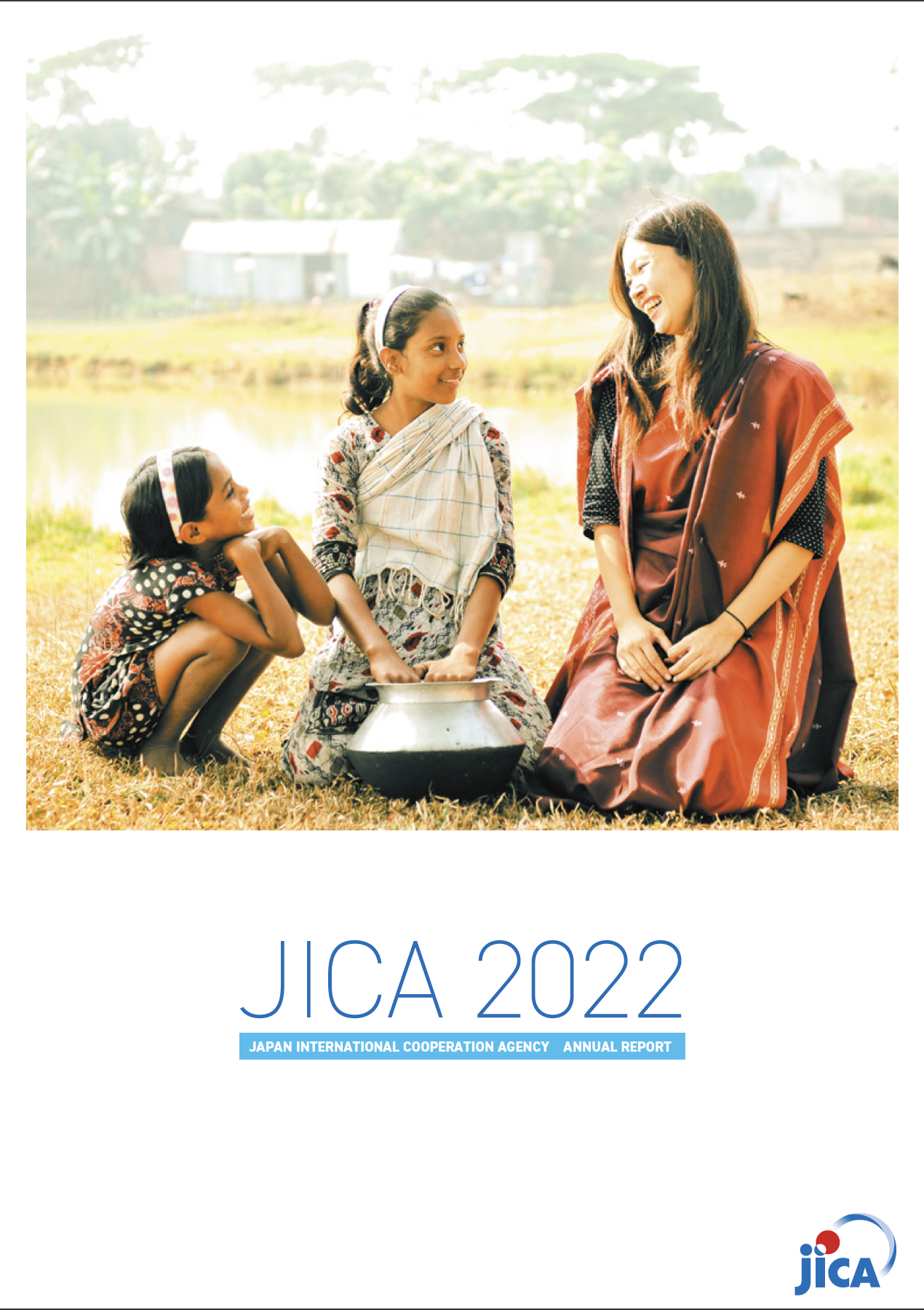partnership
Support for the Acceptance of Foreign Human Resources

Achieving a Prosperous Society Where We Live Together
Over the past ten years, the number of foreign workers in Japan increased by a factor of about 2.5 to some 1.73 million.*1 Half of them are from developing countries. They play important roles in the economic growth of their home countries, primarily through their remittances.
Japan will need four times that number, or some 6.74 million foreign workers, in 20 years if it wants to sustain its economic growth, according to an estimate by the study on “Diversity and Social Inclusion of Migrant Workers in Japanese Society—Our World in 2030/40,” conducted in fiscal 2021 by the JICA Ogata Research Institute for Peace and Development. Global competition for human resources (HRs) is intensifying but Japan has much room for improvement to invite more foreign HRs. Urgent action is needed to make Japan a country that they choose.
JICA helps foreign HRs to address various challenges they face before coming to Japan, while staying in Japan, and after returning home. Building on its strengths, JICA provides such support based on the four principles shown below.
JICA's four principles of work
- Contribute to economic growth in developing countries and to regional revitalization in Japan.
- Support in improving an environment and capacity for accepting foreign workers.
- Building a more culturally diverse and inclusive society in Japan.
- Support foreign HRs who have returned to make active contributions in their own countries.
The Kagawa-Laos model: An initiative to achieve win-win development
The Farmers Cooperative Association in Kagawa prefecture, which has been accepting technical intern trainees from Laos, is providing advice and guidance in cultivation technology even after the trainees return back to Laos, so that they can better contribute in agriculture at home. These activities are highly reputed, and in Xieng Khouang Province, the number of applicants for technical training to Kagawa is increasing.
JICA supports this initiative and also promotes cooperation with private companies and nonprofit organizations (NPOs) in Kagawa to improve the environment surrounding the acceptance of technical intern trainees and to achieve the development of both Laos and Japan.
Providing informative contents for the appropriate acceptance of foreign workers
JICA supports people seeking job opportunities in Japan. It provides accurate information on daily life and the business environment in Japan through, among other channels, Japan Centers for Human Resources Development*2 in seven countries.
Promoting multicultural and inclusive communities through 15 domestic offices of JICA
Starting in fiscal 2020, JICA has in place coordinators for international cooperation at its domestic offices who help local communities address challenges they face in accepting foreign HRs and build a more culturally diverse and inclusive society. These offices also provide training sessions and seminars regarding multicultural coexistence for teachers. In promoting such coexistence in Japan through these and other activities, JICA leverages its strengths, including the knowledge, experience, and human connections that it has in relation to developing countries.
 *1 Source: Ministry of Health, Labour and Welfare, “Situation of Notified Foreign National Employment Status” (as of the end of October 2021).
*1 Source: Ministry of Health, Labour and Welfare, “Situation of Notified Foreign National Employment Status” (as of the end of October 2021).*2 Japan Centers for Human Resources Development (known as Japan Centers) were established to help the Southeast Asia and East and Central Asia regions move to market economies. JICA assists in developing these centers as an exchange hub (platform) for Japan and the respective countries.
JP-MIRAI: Japan Platform for Migrant Workers towards Responsible and Inclusive Society
Promoting efforts at improving the environment in Japan and the capacity of stakeholders for accepting foreign workers
In November 2020, JICA established JP-MIRAI in collaboration with various stakeholders, including private sector firms, local governments, NPOs, academics, and attorneys. As of July 2022, the membership stood at some 500 organizations and individuals. JICA moves ahead with the JP-MIRAI initiative while capitalizing on the trust and human connections it has built in Japan and abroad through its international cooperation over the years.
In March 2022, JP-MIRAI set up a portal site that provides foreign workers with accurate and useful information on daily life and employment in Japan. The information is available in nine languages. It is now putting effort into creating a mechanism for listening to the “voices” of foreign workers and reflecting them in its activities.
More Information :
JP-MIRAI Website![]()
JP-MIRAI Portal site![]()

JICA Annual Report 2022